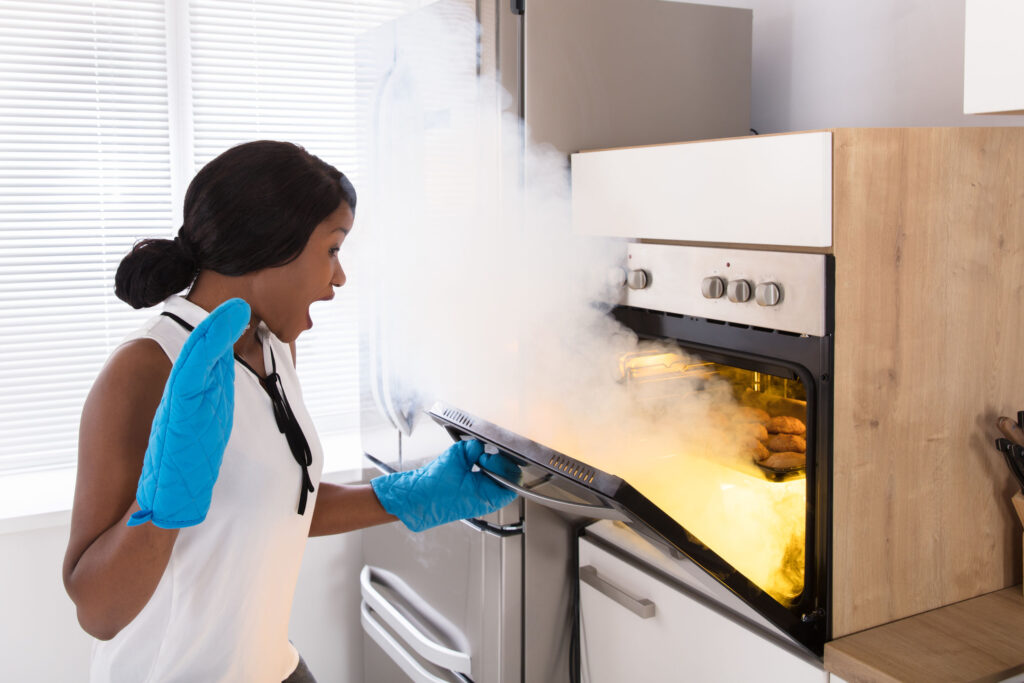
Governor Steve Sisolak issued a stay-at-home order for Nevadans on March 17, 2020 and extended the order to last until April 30, 2020, at the least, due to the global coronavirus outbreak. As a result, most Las Vegas residents are spending more time at home than usual. While staying at home should limit COVID-19 infections, houses, condos, and apartments present their own dangers. While you’re at home, it’s vital to practice proper home safety during coronavirus quarantines.
Here are some safety tips recommended by the Las Vegas team at Lerner and Rowe Injury Attorneys.
Keep Your Kitchen Appliances Clean
Since restaurants are closed for dine-in and you’ll be eating at home more, you’ll likely be using your kitchen appliances more. Be sure to inspect them before use and clean them regularly. Too much debris in the oven or too much grease on the range could lead to a fire.
Be especially careful with new appliances or ones that you haven’t used regularly. There’s a chance that a product defect could lead to a burn injury.
Monitor Your Electrical Outlets
That stay-at-home order means that everything in your house that’s plugged into an outlet will be used more. For families, this means more electrical draw than normal throughout the day. It’s important to make sure that all outlets are secure, wires and plugs are undamaged, and no outlets are overloaded.
Anyone one of those faults could lead to an electrical fire. As with kitchen appliances, keep a close eye on any new or little-used electronics that are suddenly being used heavily. A dangerous product could cause you or a family member to be electrocuted.
Prevent Slip and Fall Injuries
Injuries incurred by slipping and falling are among the most common in America. In many cases, they’re entirely preventable. Make sure that staircases and pathways are stable and well lit.
Remove any obstructions, such as toys, shoes, and random knick-knacks. Bathroom and kitchen surfaces are also bound to get wet; wipe up spills as soon as you can and be sure to have non-slip rugs by the bathtub or shower.
In rare circumstances, slip-and-fall injuries may be caused by defective products or poor workmanship. In such cases, the slip-and-fall attorneys at Lerner and Rowe can help you get compensation.
Up Your Fire Prevention Game
Since you’re at home, it’s a fantastic time to check the batteries on all of your fire alarms. The same applies to C02 alarms if you have them. Households that frequently use candles need to be especially careful.
Additionally, unattended candles could lead to a deadly fire. According to the National Fire Prevention Association (NFPA), candles cause nearly 8,000 home structure fires every year.
Safely Store Poisonous Items
Be sure to safely store cleaning products, laundry detergent, and other products that could poison members of your family. Some products resemble candy and could be appealing to children that don’t know better. Laundry detergent pods are particularly problematic. Should a member of your household ingest or inhale poisonous chemicals, contact the Nevada Poison Center immediately.
Follow Proper Home Safety During Coronavirus Quarantine
Lerner and Rowe Injury Attorneys hopes that you, your family, and your friends stay safe and healthy during the COVID-19 quarantine. Please follow the tips above on home safety during coronavirus quarantine. For additional information, please check out our broader Las Vegas COVID-19 safety guide.
Should you or a member of your family suffer a personal injury due to negligence, incompetence, or recklessness, please contact us for assistance. Our team is available 24/7 by phone at 702-877-1500 and through the Internet via LiveChat and secure contact form. Consultations are free and we do not charge any fees unless you case is won.



